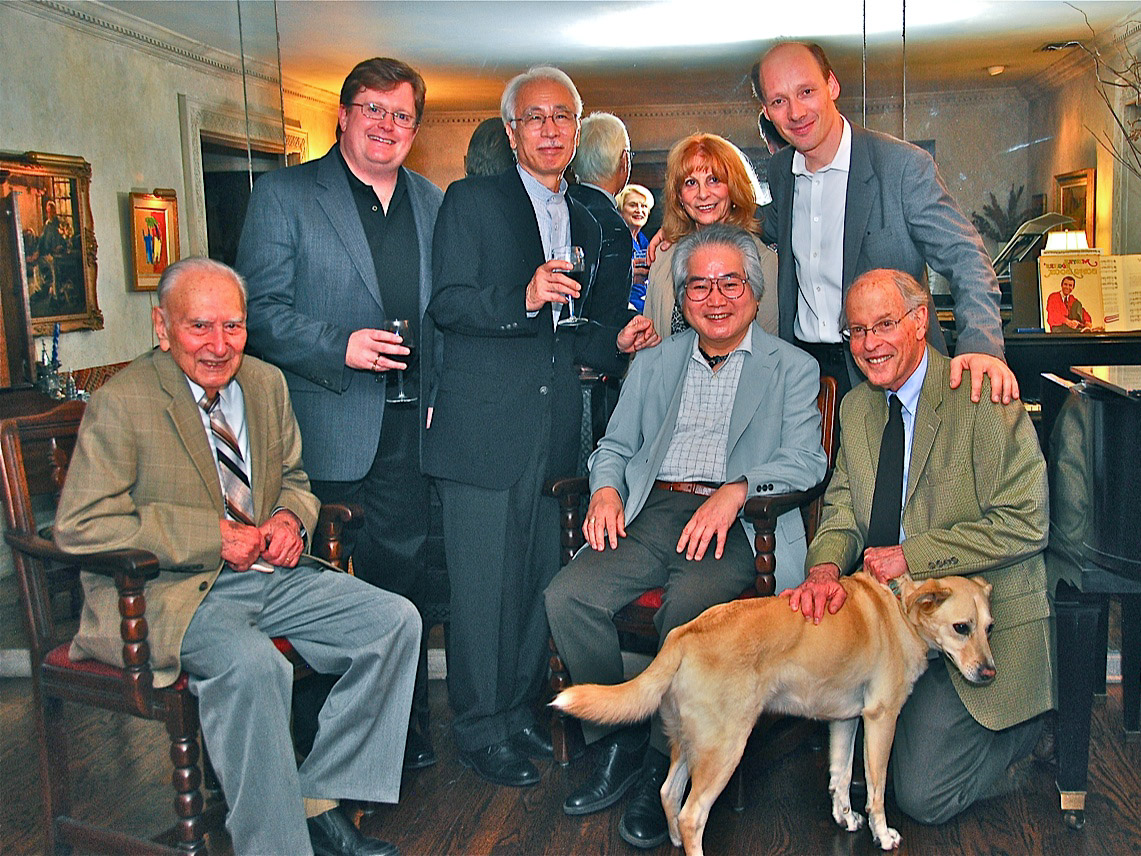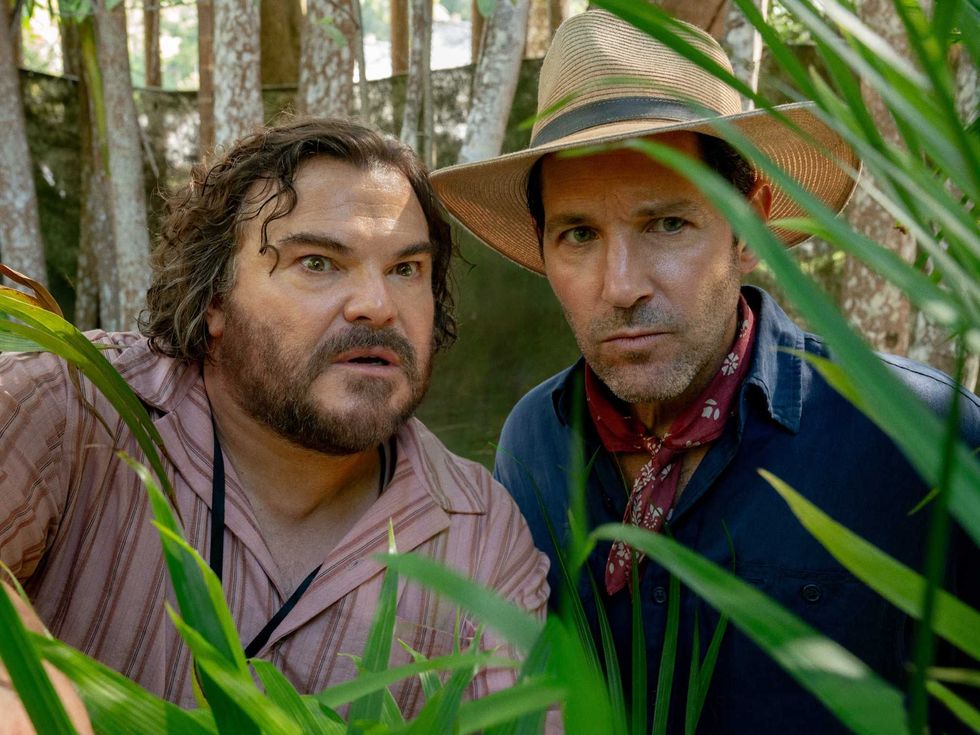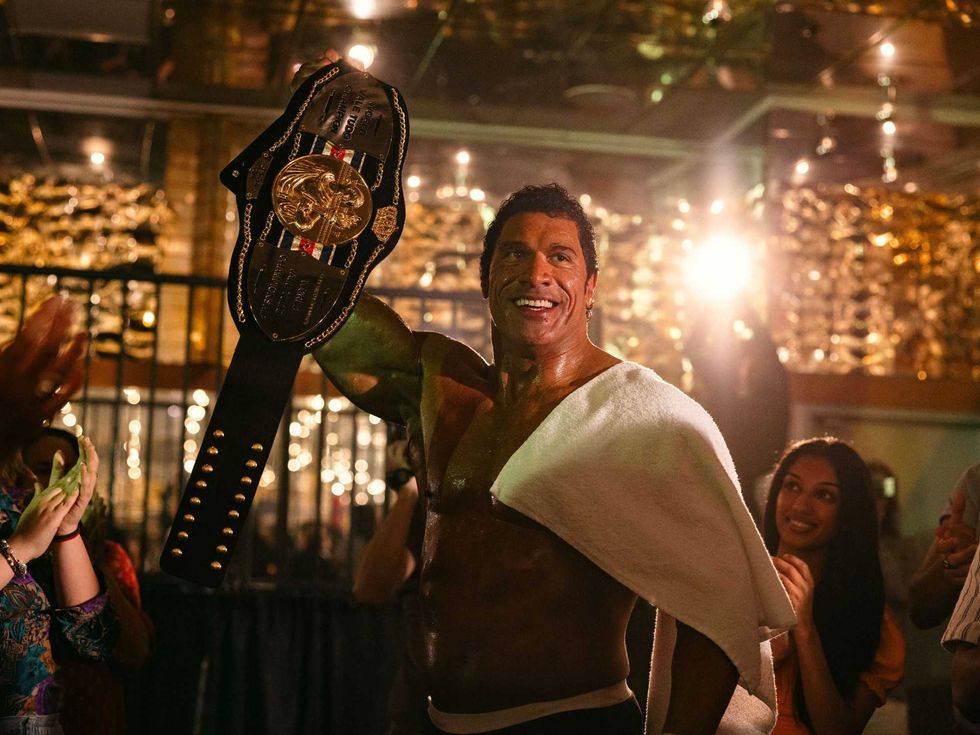Rock-star status
Music, friendships & violins: Emotional farewell for Tokyo Quartet's last bow inHouston
 Front row, from left: Dr. Jack Mazow, Kikuei Ikeda and Dr. Daniel Musher; backrow, from left, Martine Beaver, Kazuhide Isomura, Marsha Tsuchida and CliveGreensmith
Front row, from left: Dr. Jack Mazow, Kikuei Ikeda and Dr. Daniel Musher; backrow, from left, Martine Beaver, Kazuhide Isomura, Marsha Tsuchida and CliveGreensmith Houston Friends of Chamber Music's concert at Rice University's Shepherd Schoolof Music bid farewell to the Tokyo String Quartet.
Houston Friends of Chamber Music's concert at Rice University's Shepherd Schoolof Music bid farewell to the Tokyo String Quartet. What attracted listeners to this concert are the friendships that ensued fromthe nearly four decades of the Tokyo sharing music through Houston Friends ofChamber Music.
What attracted listeners to this concert are the friendships that ensued fromthe nearly four decades of the Tokyo sharing music through Houston Friends ofChamber Music.
It could have been a rock concert, except the traffic lines to access the premises were bottlenecked with luxury cars and the throng of listeners was dressed too properly for any type of late night rowdy rave. Though that didn't mean that the demand for a seat at the Houston Friends of Chamber Music concert at Rice University's Shepherd School of Music Thursday evening wasn't fierce or the behavior of a select few wasn't a tad unrefined.
As some listeners scavenged for their tickets at will call, those who took longer than expected to retrieve their admission received evil stares from others who would do anything possible not to miss the first downbeat of this bittersweet musicale, which was delayed to accommodate latecomers. After all, it was Tokyo String Quartet's farewell performance in Houston and there were some serious classical music fans in the mix.
"I guess some people just don't know their alphabet," one whispered loud enough to be overheard.
Don't mistake this waggish recount of events as ill will against those present. On the contrary, that such passion exists for traditional chamber ensembles signals that subscribers and guests of Houston Friends of Chamber Music are devoted disciples.
And that's a good — very good — thing.
"We try to project as one. Everyone in the quartet has to have the freedom to express themselves. But rather than compete with one another, we do things better together."
When much of the discourse from artists of all genres centers around the apathy about creative pursuits, and this scene was nothing of the sort, that's a reason to raise a glass and toast. Moreover, that's particularly relevant when emerging chamber music groups are asked to devise some sort of shtick to promote their endeavors — and this ensemble is as traditional as they come.
Raise a glass to what? To the Tokyo String Quartet's 43 years of sharing music, to HFCM hosting 39 of its concerts since 1976 and to the many volunteers that run this 52-year-old nonprofit.
The Tokyo String Quartet, which is retiring in June 2013 with a final concert at the Norfolk Chamber Music Festival (the summer home of the Yale School of Music), has gone through more than a handful permutations. Changing one member means altering 25 percent of the sound, aesthetic and personality of the quartet. Yet founding member, violist Kazuhide Isomura, credits one thing to the longevity of the group as an artistic force in the genre.
"We try to project as one," Isomura explains. "Everyone in the quartet has to have the freedom to express themselves. But rather than compete with one another, we do things better together. Communication is everything."
Isomura will miss the quartet repertoire, but not the traveling. He will teach chamber music in New York and visit Japan for master classes, albeit sporadically.
It wasn't the repertoire that sold out Stude Concert Hall. Haydn's String Quartet in G minor "The Rider," Bartók's String Quartet No. 6 and Mendelssohn's String Quartet No. 4 in E minor are widely performed. Yet there was rational to the conventional program.
"The inclusion of a Haydn quartet, since Haydn was the father of the modern string quartet, is very appropriate for this occasion," Martin Beaver, violinist and the newest member of the quartet, says.
Haydn's Rider is one of the group's favorite compositions.
"You have to be able to forgive. There are things that people say in the heat of the moment because of the pressures faced as a performing ensemble."
"And the Mendelssohn is happy and leaves you smiling — and so is Haydn," violinist Kikuei Ikeda adds. "That's how we want to be remembered."
Though it's believed that Bartók was drawing sketches for a seventh quartet, the sixth is the Hungarian composer's last.
"The work is tinged with pathos, referring to what was going on at the time of World War II and also from the death of Bartók mother, who was suffering very much," Beaver continues. "It's a final, sad kind of work.
"In a way, that mirrors our situation, that we've decided to call it quits at the end of the season. It's a very appropriate piece for us to play."
Bartok's orchestration and timbral scoring allows the musicians to exploit the sound capabilities of the matched set of Stradivarius instruments, on loan from the Nippon Music Foundation since 1995. Nicknamed "The Paganini Quartet," because the 19th century violinist virtuoso owned and played them, the instruments will be returned at the conclusion of Tokyo's 2012-13 concert tour.
"We've been the only players on these instruments since the foundation acquired them," Beaver says. "Now it's time for another group to inherit them, to enjoy them and to further enrich the lives of the instruments."
It's often said that the personal dynamics within a chamber group can be as dysfunctional as an outspoken family.
"The quartet life is like marriage without love," Ikeda jokes. "And in a way it's true because we work together very closely, but we don't have to be social with each other all the time. We've been lucky to be able to maintain a close relationship — but not too close."
And like any family, letting go of mistakes is essential.
"You have to be able to forgive," cellist Clive Greensmith explains. "There are things that people say in the heat of the moment because of the pressures faced as a performing ensemble. People that haven't lived that life don't understand.
"They are kind individuals. And I'd like to think the whole world is like them."
"You find out the very best qualities of your colleagues and you see them at their very worst. That's life. For the sake of the group, the music and the people that have come to hear you, you has to be able to put disagreements aside the minute you walk out on stage."
What attracted listeners to this concert are the friendships that ensued from the nearly four decades of the Tokyo sharing music through Houston Friends of Chamber Music, evident by the hordes of fans, including high school students, who sought autographs after the encore.
Dr. Jack B. Mazow, a board member who dabbles in violin, serves as the historian of the group. He remembers hearing the quartet's third concert when he had just finished serving in the airforce.
"It's an emotional thing," Mazow says. "We have come to admire them and love them for many things. They are great musicians and they are nice people. We've even had some personal contact with them, so this is a bittersweet night."
Ikeda feels the same way about Houston.
"We consider Houston audience, all of them, our friends," Ikeda explains. "When you play for an audience who isn't interested in music, we play differently. But here, with so many amateur violinists and musicians, they may be doctors or follow another profession, they deeply understand music. I feel privileged to play for this audience."
"When I hear Beethoven, I think of the Tokyo," Mazow says. "When I listen to Haydn, I think of the Tokyo.
"They are kind individuals. And I'd like to think the whole world is like them."











